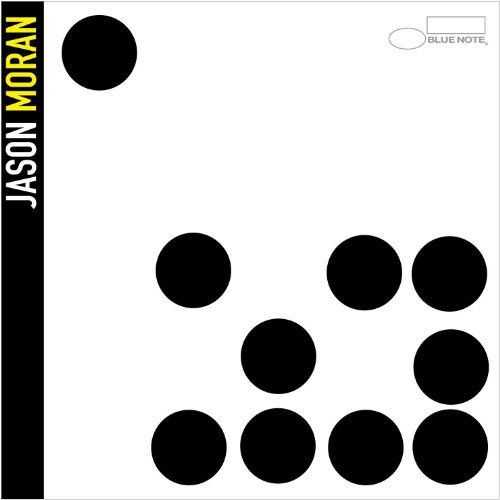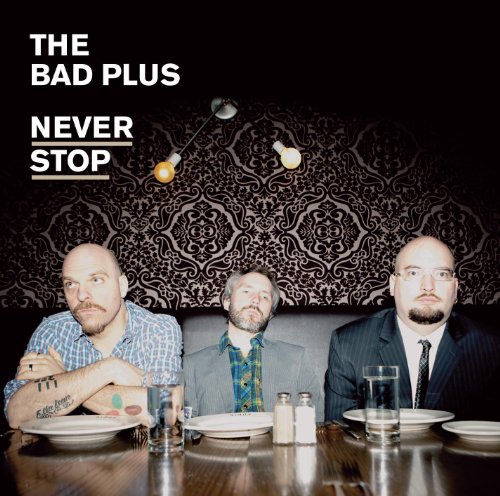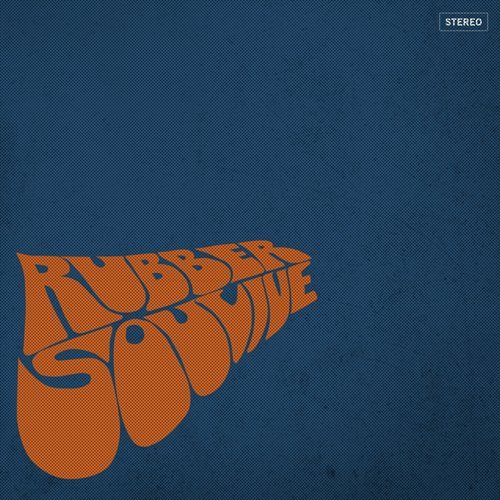Welcome to another edition of Music Diary Reviews! Wait – what Music Diary Reviews, you ask? I have been doing a series of short CD reviews grouped into full-scale articles, and seem to have no intention in stopping, so it was time to give them a real name! The basic idea is the same – a short capsule review of new release music with some highlights, a track selection and some buyer advice … and a quick video if I can find one.
What started as just another set of reviews took on a particular theme this time: there are a couple of records featuring the work of others … while another group most famous for their cover songs plays it straight this time around. There is a Pulitzer prize winner, two anniversary celebrations, and someone who I know by name but had never heard any of his recordings. But one thing for sure – there is some great music here!
So, with that … time for another quick look at some recent CD/MP3 album releases!
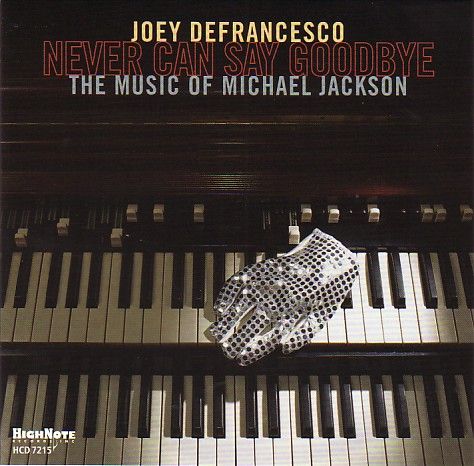
Joey DeFrancesco – Never Can Say Goodbye: The Music Of Michael Jackson
Summary: Sometimes I catch criticisms from folks because I criticize current pop music as feeling like it is designed by committee, taking bits of proven success and recombining them to sound somewhat new but largely familiar. I frame it in the context of older pop music such as the Beatles, Stevie Wonder, Joni Mitchell, Prince, Michael Jackson and others. I brought it up when reviewing Vijay Iyer’s Solo, and this recording is a recording that really puts the great music of the pop icon into full view.
Starting with a rip-roaring version of thriller which turns the beat upside-down, it is clear that DeFrancesco intends to be faithful to the material while still threading in original interpretations. There is a mix of Jackson 5 in here with classic Michael Jackson songs, unsurprisingly dominated by five of the nine songs coming from Thriller. Only one song from Bad is here, and the remaining two are from Off the Wall. It is a great sampling of classic songs.
Defrancesco is joined by Paul Bollenback (guitar), Pat Bianchi (keyboards), Byron Landham (drums), and Carmen Intorre (percussion), each contributing quite a bit to the harmonic structure that makes this much more than just a trite tribute – this is a raucous trip through the music of the ‘king of pop’, with the band deconstructing rhythms and harmonies to show how robust the compositions are, while maintaining respect for the source material throughout.
Choice Track (and why): Never Can Say Goodbye – I have always loved the beauty of the song, and the way the group performs it here is an instant classic – it hearkens back to the original while also feeling modern, is playful and yet never betrays the original delicate beauty of the melody.
You Might Love This If: You love hearing great new interpretations of classic pop music.
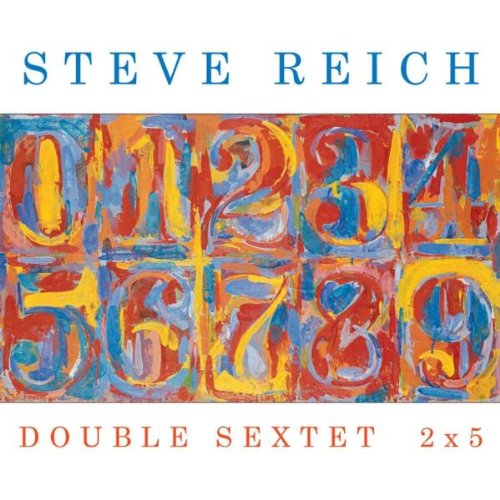
Steve Reich – Double Sextet/2×5
Summary: “Double Sextet” is the work that won Reich his Pulitzer prize, and while we could debate all day whether or not that is the work any of his fans would have chosen as an ultimate representation of his creative genius (ok, I don’t think any would) … there is little debate that this is an excellent composition wonderfully performed. Reich is one of the great composers of the classical subgenre known as minimalism.
Basically he has relatively simple harmonic structures that become more complex through repetition and stacking, move and progress slowly over time, and are interspersed with other slowly evolving harmonic structures to create an incredibly complex rhythmic structures. He innovated in phasing, pulse structures, tape & live music combination, and more. Double Sextet is a great example of his pulse structure compositions, though not up to the greatness of his ‘Music for 18 musicians’ recordings.
I am reminded of his classic Different Trains / Electric Counterpoint recording from the late 80’s. Both are excellent compositions, but one is definitely the ‘primary’ focus and the other destined to fade away. So while Double Sextet is excellent, 2×5 is the secondary feature, and while interesting in itself seems to exist more to provide contrast to the primary composition than to truly be a great composition itself. It is fun and funky and nicely orchestrated in terms of instrumentation as well as stereo imaging – Reich likes to do this to provide an extra dimension to the music.
Choice Track (and why): III Fast 6:56 – I love the harmonic variations present from the very beginning and the way the group is moved through a number of dramatic progressions from start until the climactic finish.
You Might Love This If: You like instrumental music that ‘moves’, has loads of structure and constantly reveals something new.
Summary: Jason Moran is highly regarded for good reason: he is a great musician who always delivers solid compositions and improvisations that make you think. He was recently awarded a MacArthur Genius grant to allow him to pursue his passion for studying and writing without the constant pressure to play music live to … well, keep food on the table.
Ten is named for the decade since his first release, not for the number of records he has made. It once again finds him gracefully and thoughtfully working the line between traditional piano jazz and more popular sounds and rhythms. This is yet another piano trio recording, which seem to be so common recently, and yet because of the interplay between the members and Moran’s unique sense of style, this stands out – though not to the extent that Vijay Iyer’s Historicity did last year.
Having the same trio for a decade allows for am amazing level of communication and interplay, which is evident throughout. It has been more than four years since the last record, but during that time Moran has been contributing to soundtracks and other commissioned works, which resurface here in one form or other. If there is one phrase I use often to describe younger artists I like, it is ‘looking steadfastly forward while maintaining a clear view of the past’. And that would perfectly describe this recording – not his best work nor the greatest at the pinnacle of 2010’s recordings, Ten is an excellent effort that I have enjoyed and listened to often since it arrived a few months back.
Choice Track (and why): Gangsterism Over 10 Years – revisiting a theme he has long explored, the opening sounds as it should have Miles wah-wah trumpet of the early 70’s ride in over it, then it lands on the band’s theme music and takes off from there. It is a great encapsulation of where they have been and how they have progressed – oh, and a great song!
You Might Love This If: You like piano trios that aren’t abstract, but definitely have a modern feel.
Here is a video of Jason Moran’s Trio playing Mal Waldron’s ‘Fire Waltz’ (not from Ten):
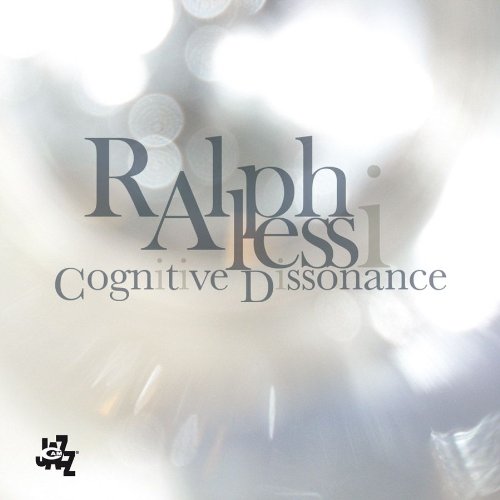
Ralph Alessi – Cognitive Dissonance
Summary: Ralph Alessi is an avant-garde trumpet player with a start and interesting sound – yet for some reason I had never actually heard any of his music before now! Since getting this I have gone back and filled in my collection with more recordings of his … but whenever you see the words “avant-garde” in my review you can be sure that this is not stuff that will please mainstream listeners.
Alessi is joined here by Jason Moran and Moran’s band-mate Nasheet Waits, as well as bassist Drew Gress. Just that list told me two things: superior musicianship and a more moderate approach. Don’t get me wrong, starting right from Cognitive Dissonance it is clear that this is going to be a somewhat ‘out there’ set, and in the midst of Buying Selling things completely loosen up for a bit – but there is always a ‘central tendency’ bringing it all back together.
For me the cool thing here is that all of the hallmarks of abstract jazz are present throughout, but Alessi chooses to have his music overflowing with beauty rather than simply being abrasive. The result is a recording that is challenging but very listenable across the long 15-song CD. A pleasant surprise as I found a delightful addition to my iPod and finally listened to an artist I had heard OF for many years.
Choice Track (and why): Dog Walking – wonderfully funky beat, muted trumpet in unison with the piano in counterpoint rhythm to the backbeat … just an infectious start that opens wide up but never loses the groove.
You Might Love This If: You like your jazz with a big of the edge but like to avoid stuff that makes your dog howl. This is adventurous without risk of singing your eyebrows.
Here is a video featuring a live performance of the Ralph Alessi Quartet:
Summary: The Bad Plus has had a bit of an identity crisis since its inception – are they essentially a ‘jazz piano power trio’. They are definitely a piano trio playing in a modern jazz style, yet they made a name for themselves as a rock song cover band who play very aggressively in a ‘power trio’ style. Their most popular recording, These are the Vistas, had only three cover songs – yet that was what drew the most attention. Throughout the years since they have balanced their recordings with a combination of originals and cover songs, with the covers always garnering more attention. Never Stop is their first all-original effort.
It would be easy to say that the originals were overlooked because they were undercooked, and while some forgettable material has made it on to each record, their compositions are solid and have improved with each record. In contrast, their last record For All I Care had more cover songs than anything previous … and the title pretty sums up my feelings. These guys play hard and with soul and funk and loads of power behind everything. There are poignant moments, wonderful interplay, solid musicianship, and an overall high quality musical experience. Fans should be happy – this is their best stuff since Prog.
In this round-up I have Jason Moran’s trio recording, and quite frankly it is hard to compare this to that. These compositions are good and the overall recording is solid but if I had to choose I would take Moran ten times out of ten – and I have already described his recording as merely ‘great’. The compositions here are solid, the playing and communication are at a high level, but it all falls flat too often for me – either the compositions are given too much emphasis, or they are not all that great.
Choice Track (and why): People Like You – a simply, but touching and poignant melody fuels this 9 minute ballad, and it never feels like it is dragging. The group interplay helps fuel the feeling of being a meeting of equals, and both the song and improvisation feed into creating a great journey for the listener.
You Might Love This If: You like song-based music with a definite rock edge, but are willing to stretch into some jazz piano music. There is a reason these guys have so much cross-over success.
Here is a video featuring The Bad Plus discussing the ‘Never Stop’ release and some music:
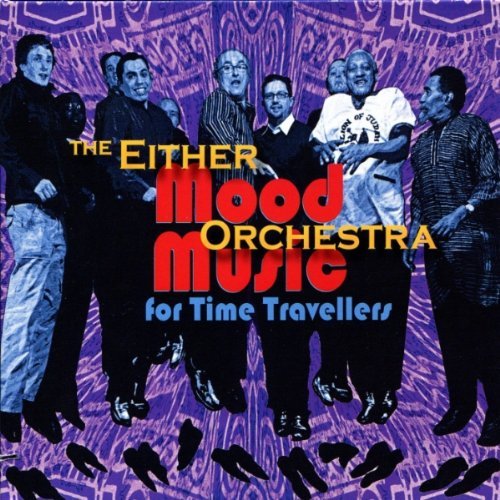
Either / Orchestra – Mood Music for Time Travelers
Summary: Boston-based Either / Orchestra have been around for 25 years as a recording unit, and during that time they have seen loads of personnel changes – but have always been a fun, engaging, high energy big band with a modern flair and great sense of style. After a five year absence they have returned with a new set of original material, this time with a funky Latin tinge to their sound.
I have commented before how large band music is making a very modern resurgence (as opposed to a less desirable nostalgia trip) – and these guys are all over it! Leader Russ Gershon has always been quick to change up the group’s focus and direction, and after years of world music and more contemplative fare, he has settled into a recording of all original compositions that are not of any particular flavor, though as I say there is a definite Latin funk pervading the tracks.
Despite being a large group, the Either / Orchestra has a very ‘tight’ feel and sometimes plays like a much smaller ensemble. My initial comparison is Darcy James Argue’s Secret Society, but unlike that ensemble this group is still very much a traditional big band – these guys have been post-modern for a quarter-century and still feel fresh and innovative.
Choice Track (and why): The Petrograd Revision – very funky with a cool contrapuntal groove, this one will have you moving from start to finish. Great composition with tremendous solos and a tight feel throughout!
You Might Love This If: You like big band music that brings in the best elements of a small ensemble, and never takes itself too seriously.
Here is a video featuring a live performance by the Either / Orchestra:
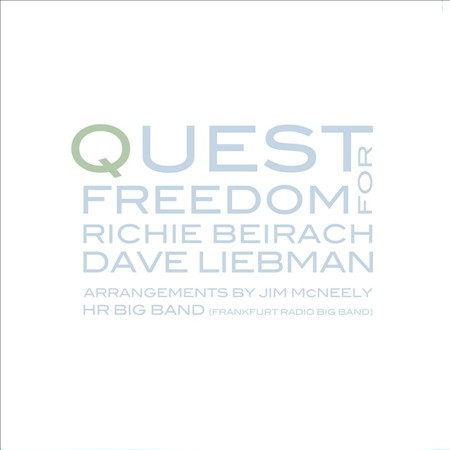
Richie Beirach/ Dave Leibman – Quest for Freedom
Summary: Richie Beirach and Dave Leibman formed the seminal group Lookout Farm in the early 70’s, and each has had an amazing career since. Neither has found the commercial success of their early 70’s work – Beirach as the big star for ECM prior to Keith Jarrett’s Koln juggernaut, and Leibman with Miles Davis – but artistically their regard and renown has only grown. They have recorded together multiple times through the years – and the results are always good. When I saw they were joining forces again I immediately jumped!
This recording has them backed by the Frankfurt Radio Bigband arranged by Jim McNeely. I was wary, having listened to Leibman’s recent ‘Live: As Always’ and found it a solid work but too ‘straight big band’ for my tastes. MyNeely plays his big band like a small ensemble, deftly working to accentuate the proceedings without ever dominating. With innovative soloists such as Leibman and Beirach things never get boring!
The compositions are very strong. We start off with a Beirach classic – Pendulum – which the duo played together several times before in small group settings. The rest of the CD is dominated by compositions from Leibman which span the range from raucous to ethereal. The set is closed by a great chart from McNeely, and we are left wanting more great music from all of the collaborators!
Choice Track (and why): WTC – as we just passed the 9th anniversary of September 11th, this is a yet another reminder of how easily the feelings of grief and anguish come to the surface. It starts with a plaintive wood flute and piano introduction before bring in the full ensemble and Leibman switching to soprano to carry through the rest of the haunting tribute.
You Might Love This If: You like the complex and contemplative sounds of ECM records, and enjoy sounds that are a mix of big band, small ensemble, mainstream and exploratory all at once.
Here is a video of a live performance by the Richie Beirach Quartet from 2008 … couldn’t find anything from Beirach & Leibman together:
Summary: Soulive is a popular group in the ‘jam band’ scene, and are all about groove-based organ-group jazz. They have had several releases over the last decade that have been enjoyable and always solid, but with a rather uneven quality that perhaps comes from translating their captivating live shows to CD. Now they are back with a Beatles-themed set.
This is far from the first jazz cover of Beatles songs, which have ranged from excellent (George Benson’s “The Other Side of Abbey Road”) to abysmal (Bing Crosby singing “Hey Jude”). Unlike many unsuccessful covers, Soulive did an excellent job of picking songs that work well with the way they play – everything is funky, groove-oriented and fun!
My biggest issue is the length – the entire CD is less than 40 minutes, which feels too short in spite of there being 11 songs! Everything on the record works well, with guitarist Eric Krasno playing ‘vocalist’ most of the time and changing from straight jazz feel to hard-rock edge with ease. Organist Neal Evans covers a lot of ground, filling in the backing vocals and rhythm guitar parts as well as doing the usual organist job of playing the bass lines.
Some songs seem like they would be a tough fit – Revolution in particular – but they reworked the rhythm and structure to make it work. The songs that come from the Revolver / Rubber Soul era are an excellent fit for the group and are a real highlight – but there isn’t a single ‘throwaway’ here.
Choice Track (and why): Eleanor Rigby – the core song is already gorgeous, but so highly structured that it makes a tough cover. Yet Soulive turns it around enough to make it work for them while still respecting the original material. It retains the power while adding a whole new dimension through groove and interplay.
You Might Love This If: If you like groove oriented music and the Beatles, you will love this CD. Trust me on this!
Here is a video featuring a medley of Eleanor Rigby and I Want You from a live performance a few months ago:
Conclusions
Since I started doing these reviews I have reflected on the seemingly constant ‘is jazz dying’ articles that appear everywhere. Over the course of this year I have reviewed nearly 50 new release jazz recordings … and all of them are very creative, interesting and of a high quality. Even within this review we see music going from groove trios to a pseudo power trio to big bands, with originals, collaborations, and popular covers. I see jazz music being extremely healthy, if underfunded.
I have tried to keep these review sets to a reasonable size, preferably six recordings – this one grew to eight as I was writing before I cut it off, and I already have five more CD’s I’m digging for the next review set! I have stuff from Esperenza Spalding, John Scofield, Neil Young, a John McLaughlin reissue, and an upcoming solo piano recording from Jon Wirtz. It looks to be another great month for jazz!


